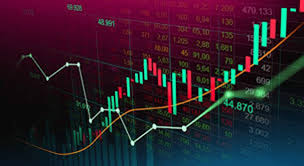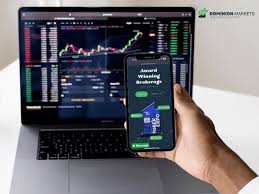
Welcome to Your Forex Trading Journey: A Comprehensive Course for Beginners
Forex trading can be daunting for newcomers, but with the right education and resources, you can navigate the currency market and make informed trading decisions. This article serves as a guide to help you get started in your Forex trading journey. Whether you’re exploring trading for fun or looking to make it your career, this course will provide a solid foundation. For those interested, you can explore various forex trading course for beginners Cameroonian Trading Platforms that can assist in your learning process.
Understanding Forex Trading
Forex, short for foreign exchange, involves the trading of currencies. The goal is to profit from the fluctuations in exchange rates. Unlike stock trading, which takes place on exchanges, Forex trading occurs over-the-counter (OTC), meaning it operates 24 hours a day, five days a week, allowing traders from across the globe to participate at any hour.
The Basics of Forex Trading
To get started, it’s crucial to understand some basic concepts and terminology associated with Forex trading:
- Currency Pair: In Forex, currencies are traded in pairs, such as EUR/USD (Euro and US Dollar). The first currency is the base currency, and the second is the quote currency.
- Bid/Ask Price: The bid price is the maximum price a buyer is willing to pay for the base currency. The ask price is the minimum price a seller is willing to accept. The difference between these two prices is known as the spread.
- Leverage: Leverage allows traders to control larger positions with a smaller amount of capital. While it can amplify profits, it also increases potential losses.
Why Take a Forex Trading Course?
Many beginners jump into trading without proper education and can end up losing money due to lack of knowledge. A Forex trading course helps you to:
- Learn Important Concepts: A structured course will introduce you to essential concepts like market analysis, risk management, and trading psychology.
- Develop Practical Skills: Online courses often include practical exercises, simulations, and real-time trading examples, allowing you to practice what you learn.
- Gain Confidence: A comprehensive education can help build your confidence in making trading decisions and developing your trading strategies.
Types of Forex Trading Courses
There are various types of courses available to suit different learning styles and budgets:

- Online Courses: Many platforms offer online courses that cover the basics of Forex trading. These courses can range from free tutorials to paid comprehensive programs.
- Webinars: Live webinars provide real-time education from experienced traders. They often include Q&A sessions, allowing you to interact directly with instructors.
- In-Person Workshops: Depending on your location, you might find local workshops or seminars that offer hands-on training and networking opportunities.
What Will You Learn?
A structured Forex trading course typically covers the following key topics:
- Market Analysis: You’ll learn about technical and fundamental analysis to help you understand market movements and make informed trading decisions.
- Risk Management: Effective risk management strategies are vital for protecting your investment and minimizing losses.
- Trading Strategies: You will explore various trading strategies, including scalping, day trading, and swing trading, to find what best suits your style.
- Using Trading Platforms: Familiarity with trading platforms is crucial. Many courses will walk you through using popular platforms and tools for analysis.
How to Choose the Right Course
With plenty of options available, here are some tips on how to choose a Forex trading course that fits your needs:
- Reviews and Testimonials: Check what other learners say about the course. Look for feedback on the quality of materials and instructor engagement.
- Course Content: Ensure that the course covers all necessary topics and skills you wish to learn.
- Cost: Evaluate the course price against similar options. While some free resources are available, investing in a quality course can be beneficial.
- Instructor Credentials: Look for courses taught by experienced traders with proven success in the Forex market.
Getting Started with Forex Trading
Once you’ve completed a Forex trading course, it’s essential to apply what you have learned practically. Here’s how you can get started:
- Select a Broker: Choose a reputable Forex broker that aligns with your trading goals and offers a user-friendly platform.
- Practice with a Demo Account: Most brokers offer demo accounts where you can practice trading without risking real money. This is an excellent way to build confidence.
- Create a Trading Plan: A solid trading plan includes your goals, risk tolerance, and strategies for entering and exiting trades.
- Start Trading: Begin trading with real money only when you feel confident in your skills and understanding of the market.
Conclusion
Forex trading offers significant opportunities for those willing to learn and commit. A quality Forex trading course for beginners is an essential step in preparing for the challenges of the market. By arming yourself with knowledge, practicing, and developing a sound strategy, you set yourself on the path toward success in currency trading. Remember, patience and persistence are key components of becoming a successful trader.
